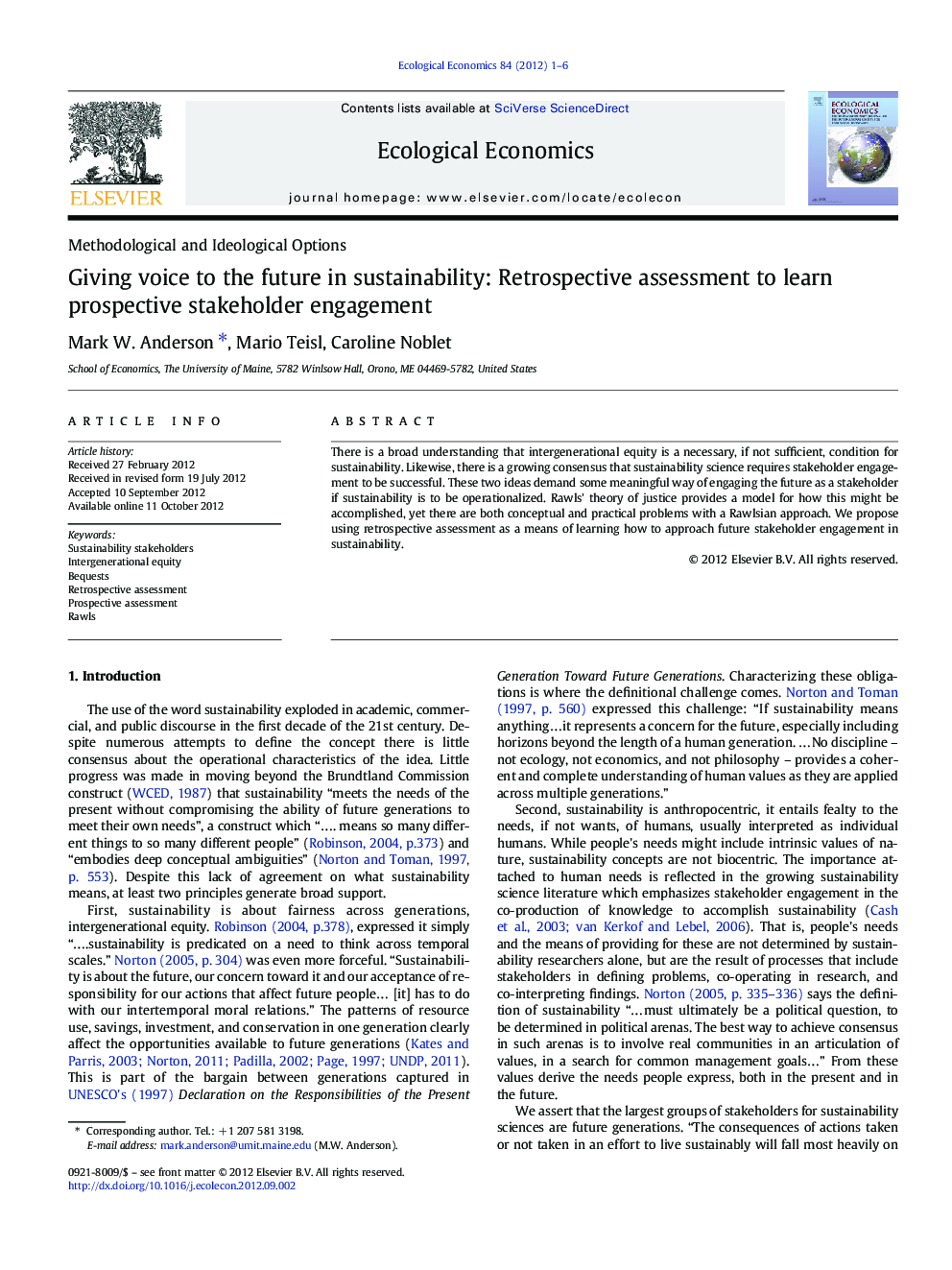| Article ID | Journal | Published Year | Pages | File Type |
|---|---|---|---|---|
| 5050047 | Ecological Economics | 2012 | 6 Pages |
There is a broad understanding that intergenerational equity is a necessary, if not sufficient, condition for sustainability. Likewise, there is a growing consensus that sustainability science requires stakeholder engagement to be successful. These two ideas demand some meaningful way of engaging the future as a stakeholder if sustainability is to be operationalized. Rawls' theory of justice provides a model for how this might be accomplished, yet there are both conceptual and practical problems with a Rawlsian approach. We propose using retrospective assessment as a means of learning how to approach future stakeholder engagement in sustainability.
⺠Intergeneration equity is a necessary, but not sufficient condition for achieving sustainability. ⺠Stakeholder engagement is a central tenet of sustainability science. ⺠The future constitutes the largest stakeholder group for sustainability, yet no systematic way to engage them exists. ⺠A Rawlsian approach to the future has been proposed, but there are difficulties in applying Rawls in sustainability. ⺠Retrospective assessment for social learning uses the present as stakeholders in past decisions affecting sustainability.
